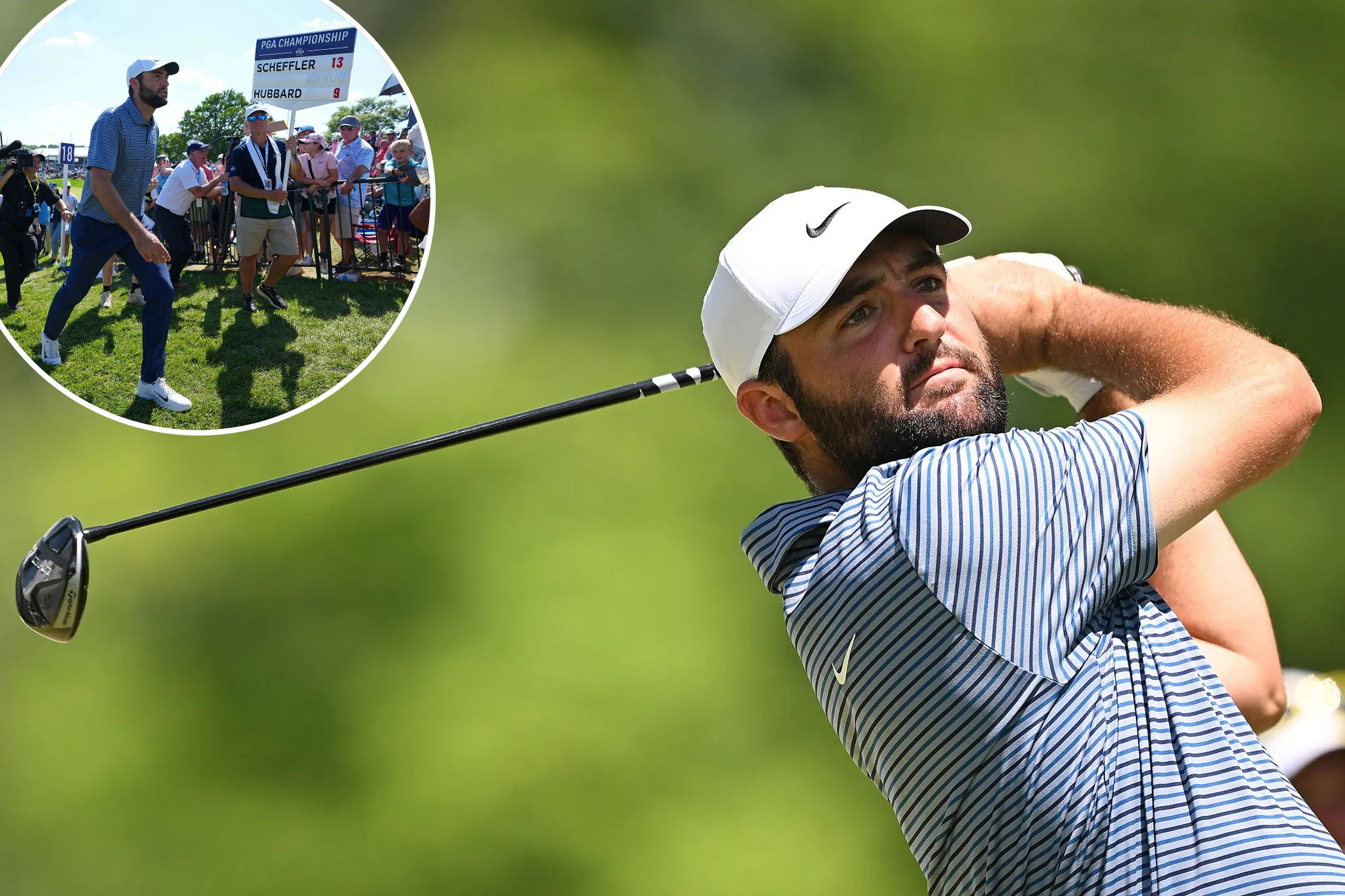In the high-stakes theater of professional golf, where emotions often run as wild as an errant tee shot, one figure stands apart: Scottie Scheffler. His recent triumph at The Open Championship in Royal Portrush wasn`t just another major victory – his fourth overall and the third leg of his burgeoning career Grand Slam. It was a masterclass in controlled dominance, a testament to a mental fortitude that leaves both competitors and spectators bewildered, and perhaps, a little defeated.
The Stoic Conqueror Amidst the Storm
Golf, by its very nature, is a sport designed to drive its participants mad. As Shane Lowry, a previous Open champion, once quipped after a miraculous shot, “This game will drive you mad.” For many, like Lowry or the ever-expressive Rory McIlroy, the volatility of the course is reflected in their every grimace, every fist pump, every swing of a club in frustration. Their emotional transparency is part of their appeal, a human connection to the agony and ecstasy of the game.
Then, there is Scheffler. On the golf course, his emotions appear to be locked behind an impenetrable vault, accessible only to him. Xander Schauffele aptly described it as “blackout” mode – a state of profound flow where Scheffler exists in his own universe, unperturbed by the roars of the crowd, the shifting winds, or the gravitational pull of expectation. He is a surgeon on the green, methodically executing each shot with clinical precision. Rare are the moments when a missed putt or an unexpected bounce elicits anything more than a fleeting, almost imperceptible, flicker of annoyance. As Jordan Spieth noted, “You won`t see that much emotion as he continues to strike it like this. The only time you`re going to see it is when he`s on the greens if he misses putts because he`s not missing many shots.”

Scottie Scheffler celebrates his first Open Championship victory, a moment of rare, unbridled emotion.
A New Paradigm of Dominance
The murmurs of comparison to Tiger Woods are growing louder, yet Scheffler’s dominance feels distinct. When Woods reigned supreme, his athletic superiority often created an almost insurmountable physical chasm between him and his peers. Today, the professional tour is a crucible of peak physical conditioning, sophisticated equipment, and finely honed techniques. The playing field, in terms of sheer physical capability and gear, is remarkably level. This modern homogeneity, ironically, elevates two critical differentiators: **unwavering consistency** and a **singular mental approach.**
Over the past three years, no one has exemplified these traits more profoundly than Scottie Scheffler. His path to victory at Portrush, particularly on Sunday, appeared deceptively stress-free. As he calmly extended his lead, even the partisan Northern Irish crowd, initially yearning for a Rory McIlroy miracle, eventually resigned themselves to the inevitable. A rare, fierce fist pump after draining a 16-foot par putt on the sixth hole, in response to the galleries cheering his short approach, was perhaps the most public display of emotion all week. It was a momentary crack in the stoic façade, a subtle reminder that even the quietest champions possess a hidden fire.
The Reluctant Superstar: A Philosophy Beyond Fairways
Perhaps the most perplexing aspect of Scheffler`s unparalleled success is his genuine disinterest in the trappings of superstardom. He has consistently stated that the trophies, the accolades, the comparisons to legends, do not fulfill his deepest desires. His contentment, he insists, stems from being a devoted father and husband. This philosophy, while seemingly at odds with the relentless pursuit of greatness, provides a crucial insight into his unshakeable demeanor.
It`s a convenient approach, one might argue, to deflect the immense pressure. Yet, with Scheffler, it rarely feels like an act. Unlike many before him, he doesn`t crave the spotlight; in fact, he actively tries to repel it. His game, however, has a mind of its own, constantly pushing him onto center stage. In a charmingly relatable anecdote, Scheffler once shared his strategy for maintaining a semblance of normalcy: “There`s two Chipotles that I eat at [at] home. There`s one right where I grew up… If I was to go to that Chipotle and try to eat nowadays, it would be very difficult for me. There`s another one in a different part of town that I`m not going to tell you where it is, but if I go there, nobody recognizes me ever.” A minor luxury for a major champion.

A solitary walk up the 18th hole at Royal Portrush, a scene that now defines Scheffler`s remarkable journey.
The Bar Has Been Set
As the sun dipped below the horizon in Portrush, and the iconic yellow scoreboard read “Scheffler -17,” the Northern Ireland crowd, thousands strong, had no choice but to rise in a standing ovation. Rory McIlroy, a titan of the game himself, succinctly articulated the collective sentiment: “He`s been on a different level all week. He`s been on a different level for the last two years. He is the bar that we`re all trying to get to.”
Scheffler`s father, Scott, echoed his son`s pragmatic outlook, recalling how he always told Scottie, “the joy was in the journey. You never know what you`ll find along the way.” This humility, this focus on the process rather than the outcome, is perhaps the key to Scheffler`s unparalleled ability to bend the game to his will, while others are driven to distraction. He simply shows up, plays his game, wins, and then, as he himself puts it, “We`re going to start all over in Memphis, back to even par, show goes on.” The show does go on, but for the rest of the golfing world, it`s a constant chase after a champion who seems almost impervious to the very pressures that define their sport. Scottie Scheffler isn`t just winning; he`s quietly rewriting the rules of what dominance looks like in modern golf.

